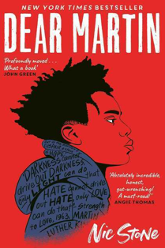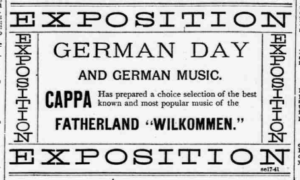By Sabrina Völz
 It’s been nearly 52 years since Dr. Martin Luther King, Jr. was assassinated on April 4, 1968. Without a doubt, he continues to inspire new generations and serve as a role model for non-violent protest and change. In honor of Black History Month in February, I’d like to review a young adult novel that brings the conversation on racism and growing up Black in the United States to a new level. It investigates whether King’s teachings are still relevant today and whether they can help Jystice, a 17-year-old, promising high school student. His life is turned upside down when he tries to help his intoxicated ex-girlfriend get home safely one night. In a confrontation with two police officers, Jystice ends up on the ground in handcuffs – an all-too-familiar sight. The problem: She’s White and he’s Black. As a result of the assault, Jystice will never be the person he once was.
It’s been nearly 52 years since Dr. Martin Luther King, Jr. was assassinated on April 4, 1968. Without a doubt, he continues to inspire new generations and serve as a role model for non-violent protest and change. In honor of Black History Month in February, I’d like to review a young adult novel that brings the conversation on racism and growing up Black in the United States to a new level. It investigates whether King’s teachings are still relevant today and whether they can help Jystice, a 17-year-old, promising high school student. His life is turned upside down when he tries to help his intoxicated ex-girlfriend get home safely one night. In a confrontation with two police officers, Jystice ends up on the ground in handcuffs – an all-too-familiar sight. The problem: She’s White and he’s Black. As a result of the assault, Jystice will never be the person he once was.
Nic Stone’s debut novel, Dear Martin (2017), interweaves the topics of racial profiling, police brutality, blackface, colorblind racism, micro-aggressions, and acting ‘White’ with questions of identity, friendship, and interracial relationships. With that list, you might just ask yourself how the author still manages to tell a good story without getting too distracted and preachy. Well, she does. But before exploring the topic further, I’ll let Nic Stone introduce the book in her own words.
Read more »










